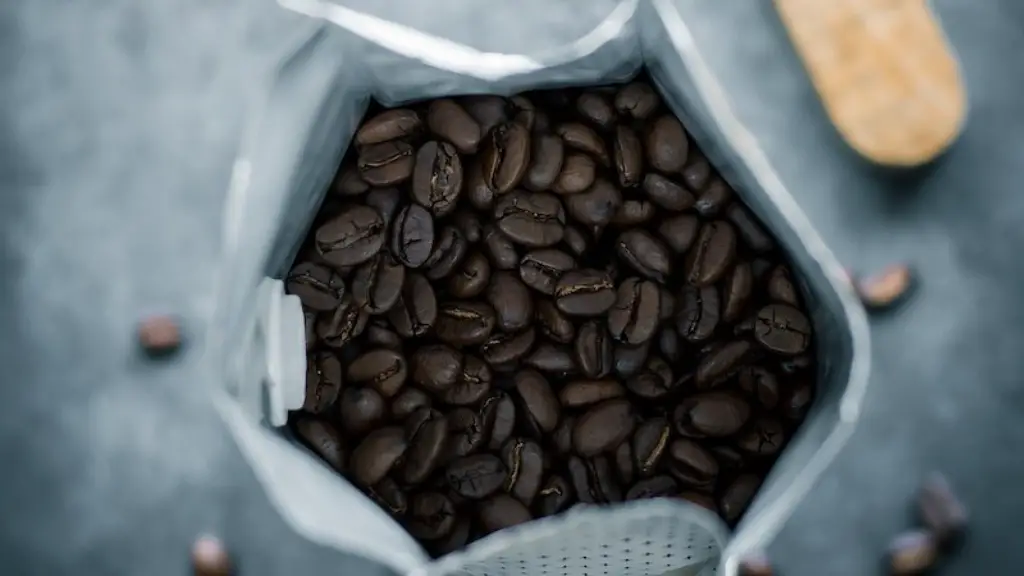Can I Drink Coffee on an Intermittent Fast?
Intermittent fasting is becoming an increasingly popular diet plan, with a growing body of research showing that it has various health benefits. It’s an approach to fasting in which an individual cycles between periods of eating and fasting, such as by fasting for 16 hours followed by an 8-hour window of eating. One of the questions that often arises when considering intermittent fasting is whether or not it’s okay to drink coffee during the fasting period.
Most experts agree that coffee is generally allowed during an intermittent fast. For example, the National Institute of Aging states: “Coffee and tea (without adding cream, milk, or sweeteners) are allowed on a fasting day, as long as they don’t disrupt your fasting schedule.” Additionally, according to registered dietitian and founder of Nutritionary, Abigail Kinnear, “Coffee is an ideal beverage for those following an intermittent fasting plan as long as it doesn’t contain any calories, added sugars, or unhealthy fat, like cream or butter.”
Does Coffee Break a Fast?
Many people think that drinking coffee may “break” a fast and inhibit the benefits of intermittent fasting. However, this isn’t true according to registered dietitian nutritionist, Isabel Smith. She states: “As long as what you’re putting into your coffee won’t break your fast, then no, it won’t break your fast.” While adding milk or sweeteners could make the beverage “off limits,” plain coffee does not impair the effects of the fast. In fact, many believe that coffee consumption can actually support intermittent fasting.
A 2018 study notes that coffee consumption can improve fasting glucose levels and in turn, reduce inflammation and oxidative stress during intermittent fasting. The study also found that drinking coffee slightly elevated levels of cholesterol, but not in an unhealthy way. According to the author of the study, “the slightly elevated cholesterol levels were the sign of the body adapting to the intermittent fasting, an adaptation that is most likely beneficial over a long period of time.”
Benefits of Coffee During Intermittent Fasting
Experts believe that coffee may be able to support the diet in a variety of different ways. For starters, plain coffee contains a powerful blend of antioxidants, which can help reduce inflammation in the body. Furthermore, coffee has been linked to improved mental focus, alertness, and memory—all of which can be beneficial for those following an intermittent fasting plan.
Additionally, coffee can give the body an increased level of energy, which can help those on a fast stay energetic and alert. Drinks such as green tea or bone broth, while beneficial in their own right, may not provide the same level of energy as coffee can. For people that don’t usually drink coffee, it is important to note that a little goes a long way. Additionally, if caffeine affects you negatively, such as if you struggle to sleep or experience jittery feelings, then it may be best to avoid or be sure to lower your intake daily.
Caffeine: The Pros & Cons
Although experts generally agree that coffee is allowed during intermittent fasting, it’s important to remember that coffee still contains caffeine. Depending on your individual body, caffeine can have both positive and negative effects. For example, for someone that is looking for an energy boost, caffeine can be a helpful tool. But for someone that is more sensitive to caffeine, it can lead to negative side-effects.
Caffeine is also a diuretic and can cause an individual to urinate more frequently, which can lead to dehydration. Therefore, it’s important to stay hydrated and balanced during intermittent fasting, which may mean avoiding or limiting caffeine. Additionally, some researchers have found that too much caffeine can disrupt sleep patterns, which are incredibly important for a healthy lifestyle. If caffeine is making it hard to fall asleep, it’s best to limit your intake or switch to caffeine-free drinks.
Understanding Personal Limits
Before engaging in any new diet plan, it’s important to understand your own personal limits and choose a plan that is best for you. Caffeine affects everyone differently, and understanding your own body and needs is essential. For example, if caffeine doesn’t affect you in negative ways and you’re just looking for an energy boost, then you might enjoy the effects of caffeine during an intermittent fast. But for others, it may be better to abstain or limit the amount of caffeine consumed during the fast.
Moreover, it’s important to remember that the best approach to intermittent fasting is one that is tailored to your own individual needs. Incorporating coffee during the fast is generally allowed but remember to understand your own personal limits and adjust your approach as necessary.
Applying Intermittent Fasting to Everyday Life
Life is full of hectic schedules, and one of the pros of intermittent fasting is that it can fit into a busy lifestyle. For many, fasting during the morning and afternoon with a smaller window for eating can streamline their day. Additionally, for those that have struggled to find success with traditional diets, the eating pattern of intermittent fasting might help with developing healthier habits and improving mood.
It’s also important to note that intermittently fasting does not imply strict rules and restricted eating. On the contrary, creating flexibility and allowing for “cheat days” can bring balance to the eating plan and provide more comfort for the individual. To this end, coffee can make the fast much more enjoyable and give the individual the energy boost necessary to power through their day.
Preparing For an Intermittent Fast
Developing an intermittent fasting plan can be helpful prior to beginning the diet. Depending on your schedule and individual needs, it’s important to plan out meals and fasting periods on a week-by-week basis. Many experts suggest starting with a 16:8 approach, which consists of 16 hours of fasting and an 8-hour window for eating.
Additionally, if you plan on consuming coffee during your fast, it’s important to Feducre or eliminate any sugary additions, as well as unhealthy fat sources, such as butter and cream. Consult a dietitian or nutritionist if you’re unsure about what your individual plan should look like. Ultimately, intermittent fasting can be an effective way to reach health goals, and adding coffee during the fast can be beneficial for most individuals.
Find the Right Foods for Your Intermittent Fast
While coffee is generally allowed during an intermittent fast for most individuals, it’s just as important to incorporate whole foods during the eating window. Fueling your body with the right types of foods can help you benefit from the effects of intermittent fasting. For example, adding healthy sources of carbohydrates and proteins, such as fruits, vegetables, nuts, and whole grains, can help you unpack the energy you need throughout the day.
Additionally, some people don’t know what to eat during an intermittent fast, which is understandable. However, it’s best to focus on nutrient-dense foods, whole-foods, and items that are low-calorie and full of vitamins and minerals. Finding the right combination of healthy foods and beverages, such as coffee or green tea, can help provide the nutrients and energy you need while still adhering to the principles of intermittent fasting.
Drinking Coffee During Intermittent Fasting: Benefits and Limitations
Although coffee consumption is allowed during an intermittent fast for most individuals, it does have limitations. For those that are sensitive to the effects of caffeine, it may be best to abstain from consumption or limit daily intake. Additionally, it’s important to understand the different ways caffeine affects your body and mood as you progress with your intermittent fast.
Moreover, be sure to stay well hydrated and balanced with whole-foods to support the health goals of intermittent fasting. Ultimately, understanding your own personal needs in the context of the fasting plan can help you reach the desired outcomes. Coffee can provide a great energy source and can be beneficial when it’s limited to certain times or approaches.
Considerations When Incorporating Coffee During Intermittent Fasting
Intermittent fasting can be a great dietary plan when done in a safe and healthy manner. This is why it’s important to think about how coffee will fit in during your fasting schedule. It may not be necessary to drink coffee every day, or at all. Additionally, it’s a great idea to have a plan for when and how much coffee you will drink during a fast.
Perhaps try switching to green tea with no added sugar on some days, or even drink herbal teas such as chamomile tea. Furthermore, consider other healthy drinks such as bone broth which can be pre-made or homemade. Ultimately, be sure to evaluate what drinks work best for your own body and intermittent fasting plan.
Preventing Caffeine Overload When Fasting
We all know the feeling of having too much caffeine, which can be all too common when following an intermittent fasting plan. To combat this, it’s important to pay attention to your body’s cues and listen to signs of over-caffeination. Signs can range from jittery feelings to general fatigue, and can be unique for each person.
If you’re having trouble sleeping, headaches, or notice irritable feelings, it might be time to cut back on caffeine. Additionally, if you’re feeling energized during the fasting window and don’t feel you need coffee, then abstain. Remember, developing an intermittent fasting plan that respects the limitations of your body is key to success with the diet.
Make Intermittent Fasting Work For You
Don’t be afraid to experiment to see what works best for you over time. Intermittent fasting can be a great addition to a healthy lifestyle and it’s important to adjust gradually. If you’re unsure of how to approach intermittent fasting or if a certain beverage or food will fit into your plan, don’t be afraid to consult a doctor or dietitian. They can provide tailored feedback on your diet plan and make sure you’re practicing intermittent fasting in a healthy manner.



